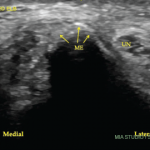
Image Credit: Henry Hazboun/shutterstock.com
If Stephen Soloway, MD, FACP, FACR, CCD, wants to thank someone for his impressive baseball card collection, he may want to start with his mother. Recalling her taking him for baseball cards regularly, he went on to become the rare owner of every set of famed Topps, not to mention a few individual cards with some guy named Babe Ruth on them. “I loved baseball cards, and I loved to play baseball,” he says. “I was actually very good until I had congenital visual issues. Until then, I think my family thought I would have a career as a Major League player.”
But like Moonlight Graham found in Field of Dreams, one wish ended can open the door to another. In fact, Dr. Soloway, who opened the doors of Arthritis and Rheumatology Associates of South Jersey in 1993, has been able to turn it into a solo-owned practice that he says serves a high volume of many hundreds of patients a week.
“I didn’t know how big it would get,” he says of the Vineland, N.J., location. “But I just kept on working hard. It’s like they say, ‘the harder you work, the luckier you get.’”

Dr. Soloway
Dr. Soloway considers himself lucky to have found rheumatology, tracing the choice to when he was a third-year resident. “At that point, you’re putting IVs together, doing lumbar punctures, standard things. … But then what I saw with rheumatology is how interesting it is, because of the complex nature of diseases. To be a good rheumatologist, you have to be a strong internist. You’re treating the whole body. … We also treat joint pain non-surgically, and I never met a good rheumatologist who couldn’t treat it as well as anyone in the orthopedic field.”
Getting Down to Business
A day in his life often starts with a little business talk. “I like to discuss what possible expansion we might be doing,” he says, “what changes we might be making.”
Then it’s time to try and improve life for some patients. It averages around 50% connective tissue-oriented patients and 50% medical orthopedics or outpatient orthopedics, he says. “I’ll admit I can interrogate a little like an FBI agent. I want [patients] to focus on what I need to know. … But I also want them to know that I’m their friend. I’m here to help them. … They deserve my best.”



